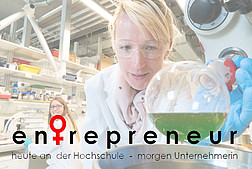Female Professor Program II from the BMBF (2014-2019)
In the second round of the BMBF’s female professor program, the University of Hohenheim was successfully able to apply for five-year funding for two positions for female professors. The primary condition for this was a convincing implementation of a successful Gender Equality Plan, which has existed for many years at the University of Hohenheim. The University contributes to this program with its own funding. The University’s Gender Equality Representative has present all the measures to various committees at the University of Hohenheim such as at meetings of the Faculty Councils or for the Gender Equality Committee.
One focus of the program is the targeting promotion of highly qualified, female early career researchers on the path to a professorship. This includes the following measures:
- The University of Hohenheim has concluded a cooperation agreement for the MuT Program (Mentoring and Training) with the State Conference for Gender Equality Representatives at Scientific Universities (LaKoG). This program enables highly qualified female scientists to prepare for applications and appointment procedures.
- The job pool for female early career researchers provides additional funds for newly appointed female professors, who can request a half-time E 13 position for a maximum of three years.
- The original assistance for female scientists who generally fulfill the conditions for a Margarete von Wrangell Scholarship but are not among the top choices was successfully used for other purposes by the project funding organization. Starting in 2015, female scientists with a post-doctoral lecturing qualification can take advantage of this assistance on their path to a professorship.
- The funds for leaves of absence allow female project leaders the chance to make up for limitations to experiment activities of female scientists due to maternity leave by hiring temporary assistants.

